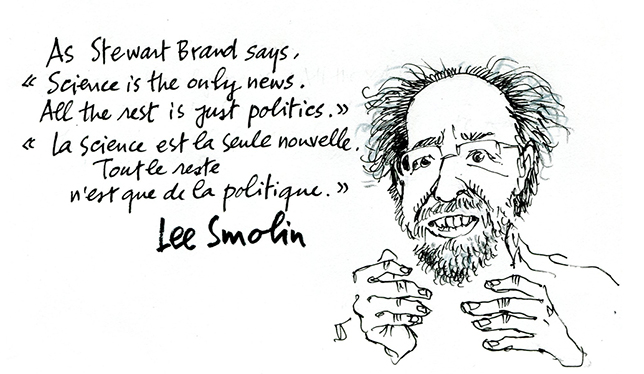More than 100 public figures from the world of politics, the arts, academia, and the media have expressed their support for science journalism during an advocacy campaign organized by l’Agence Science Presse, a science news agency based in Montreal — the only one in Canada.
The campaign, called #100LaScience (in French, 100 is pronounced “sans,” meaning “without”), aims at gathering powerful allies for science journalism at a time when media shakeups and a lack of funding make it precarious work.

Only 18 months ago, the Quebec government announced it would cut funding to publications and groups that have been pillars of science communication for decades, such as the kids science magazine Les Débrouillards, l’Association des communicateurs scientifiques du Québec, and l’Agence Science Presse.
“We realized then how much our future was uncertain,” says Josée Nadia Drouin, the agency’s director general. Under pressure, the government quickly reversed its decision. But the potentially devastating news was a wake-up call for the organization and the science communication community as a whole.
In the aftermath, the small but active agency launched a campaign to gauge public support for science journalism. “We wanted to take this opportunity to specifically alert the public to the importance of journalism in science communication,” says Agence editor-in-chief, Pascal Lapointe. The group collected statements of support from 100 well-known people and tasked Débrouillards illustrator Jacques Goldstyn with creating caricatures for each one. At least one image was published online every day.
Thirty campaign participants are associated with universities. One such participant is well-known economist Pierre Fortin, who wrote that he dreams of the day science journalists might reach one-third of the popularity of some pop stars in Quebec. Strong support also came from outside the field, such as from former Chateau Frontenac Grand Chef, Jean Soulard, who pointed out that journalism must remain as a critic of science.
“There was a ripple effect,” says science writer Brite Pauchet. “The quotes from important people brought upon several others.”
The campaign was so successful that it led to more than $7,800 raised for Agence Science Presse’s Le détecteur de rumeurs, a fact-checking project aimed at highlighting the scope and dangers of pseudoscience and incorrect scientific information in the media.